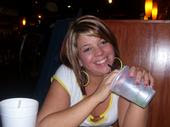Monday, April 6, 2009
How did president Hoover respond to the Great Depression?
The Great Depression was more than just an economic downfall; it was also America’s faith. During a time like that Americans turned to their president, Herbert Hoover, for help. A president can inspire fear and panic or can promote confidence, which is what sets the public’s mood. Hoover was regarded as a “do-nothing president.” To show his optimism about economic recovery, he kept formal dress and manners in the White House. He insisted no one was starving; however Hoover was in denial. Little towns of American cities filled with mainly shacks began to call their towns Hooverville. Hoover felt that government intervention would weaken people, so instead he made a handful of changes that helped businesses that didn’t need any help. Once the public seen that Hoover didn’t have the political knowledge he needed to pull the world out of this, they began making signs of families in ditches and making jokes about the poverty that he was doing nothing to help solve. Hoover didn’t like speaking to the press, and finally refused to talk to them and hid in the white house. Hoover’s parents died in the depression on 1893, and he was able to pull himself up, which is why he thought that all the people needed to do was pull themselves up. Hoover thought that America was a strong nation and nothing was wrong that a little hard work couldn’t cure. He felt that government convention was not needed, but he felled to realize that 1893 and 1920 were two different time periods. People did not live the same way as they did then therefore Hoover created more suffrage. He got Congress to pass the Agricultural Marketing Act in 1929. This act made a Farm Board that would use its budget to buy up surpluses and hopefully raise prices, but instead they went down. He also enacted the Hawley-Smoot tariff of 1930 to help end the deflated prices. This tariff made the highest rates in history. Congress also authorized money for public work jobs to help the unemployed, however the economy continued to weaken. In 1931, Hoover allowed Red Cross to distribute surpluses to the hungry, and offered small loans to the states to help them with their relief efforts. Hoover was only curing the problem for the moment though, it seemed he lacked the quality he needed to restart the economy and end human suffrage. The public responded to Hoover’s reactions very angrily. They saw agricultural surpluses in the countryside and factories standing still. Many people became homeless or had to share shelters with other families. Americans still would find enough money to be able to go to the movie palaces. They felt that with their own president in denial, this was the only place they could find reality. Hollywood tried to keep Americans on the right side of the law and away from crime, but crime continued to increase. People who had lost their homes and farms to bank foreclosures thought that bank robbers were only getting back the money the banks had took from the poor, this led to an increase in robberies. Unemployed autoworkers stood at Henry Ford’s River Rouge factory and demanded work. When he sent his private security forces out, workers threw rocks at them and they responded with gunfire killing four of them. Farmers also formed the National Farmer’s Holiday Association and all farmers took a holiday from shipping crops to the market. The depression caused a combination of homeless hoboes, strikes, and malnourished sharecroppers, and by 1932, people were actually dying from starvation. Hoover was not a bad person who lacked compassion; he just lacked the political knowledge needed to get America back on track.
Subscribe to:
Post Comments (Atom)

Wow! I'm doing a history assesment and this really helped me. Thanks.
ReplyDeleteI think it would help if you threw some paragraphs in there to clean up your thoughts a little bit better.
ReplyDelete